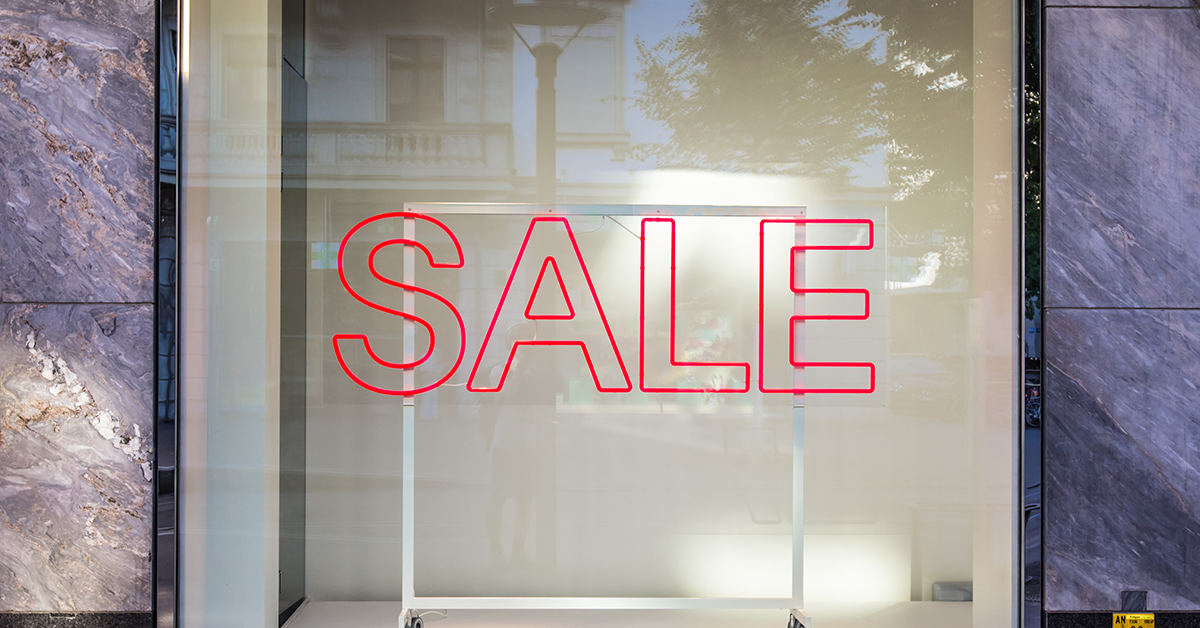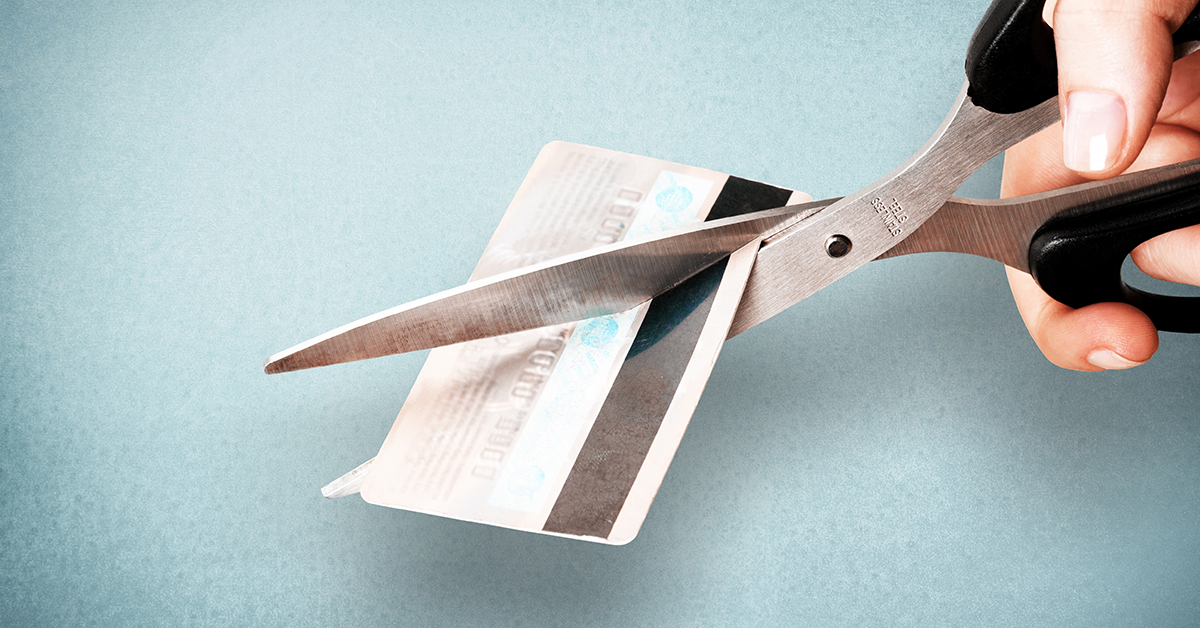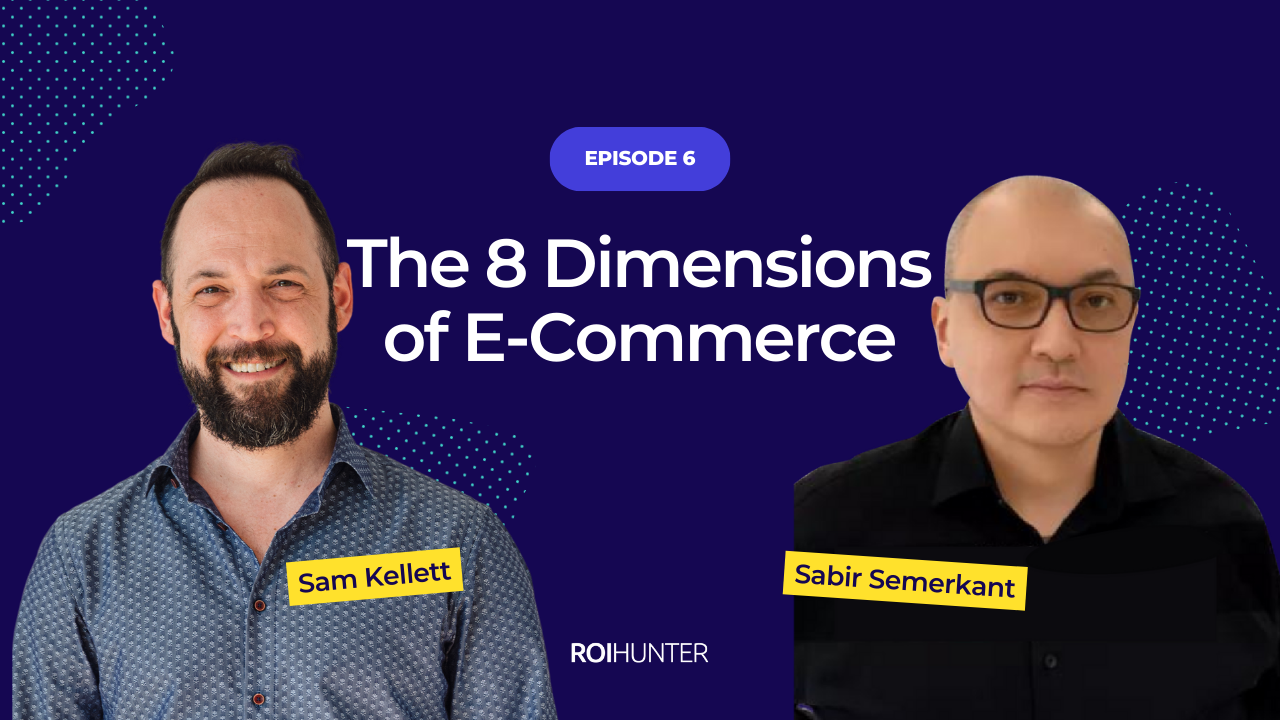As I write this, stocks are plummeting and quarantines are being enforced. Beyond entering the first bear market since recovering from the 2008 crash, we’re doing it in the midst of a global pandemic.
Over the past decade we’ve seen the e-commerce industry grow in leaps and bounds, but with another crisis at our heels, what should we expect to happen next?
Consumers Seeking Discounts
Luxury Brands Making a Change
Less Available Credit
Increase in People Shopping Online
What Now?
1. Consumers Seeking Discounts

The discount economy that we see today was born out of the last crisis. With customers looking to save money and find the greatest value, brands began deep discounting in order to protect sales.
While the discounting was gradually reduced, we saw a return to near 2008 levels as recently as December, 2019. Discounting was already widespread during the economic boom of last year. With the economy teetering on collapse yet again, retailer margins may now be too thin to drop prices much further.
2. Luxury Brands Making a Change

Sales in high end department stores were down 25% in 2009, causing 70% markdowns and a rise of Flash Sale retailers profiting off the deadstock left over. However, the big result with luxury was the change in style.
Sales recovered, but brands started avoiding over-the-top luxury in their look, opting for minimalist designs instead. This change is still in effect today. The question is where it may go from here.
3. Less Available Credit

Following the crash in 2008, banks began restricting credit - even from consumers with a proven track record. By September of that year, 62% of credit card issuers had cut back consumer lines of credit - some by as much as 50%.
A lack of consumer credit can have serious ramifications for e-commerce, where most purchases are done via credit card. Beyond the effect on consumers, a credit crunch like this puts small businesses at risk of running out of cash.
4. Increase in People Shopping Online

The positive effect for e-commerce companies is that the 2008 financial crisis drove online shopping to new heights.
Consumers, compelled by the need for cheaper goods, turned to the internet to find shopping comparisons and special deals. In today’s climate, though supply chain delays and stock-outs are expected, e-commerce is set to experience another wave of popularity.
Unfortunately, the problem facing e-commerce these past few years isn’t a lack of revenue, but a lack of profitability. As mentioned above, even during the recent economic boom, discounting remained near 2008 levels. The need for even lower prices, as retailers compete over market share in a more dismal economy, will likely exacerbate profitability even further.
What Now?
What can e-commerce retailers do to mitigate the negatives long enough to take advantage of the positive increase in online traffic?
We need to start working smarter. We need to look deeper than revenue-based vs. ad-spend based ROI, and focus on profitability.
This doesn’t mean an end to discounting; it means taking a more data-driven approach to marketing. Marketing teams need to shift their focus to actual profitability, instead of a focus on increasing revenue growth from discounted products.
Profitability can be determined at the product-level, including factors like margin, chance of item return, stock levels in the nearest warehouse, and much more. This way, products that are performing don’t become lost among products that are not. Take a look at our Product Performance Management (PPM) platform page for more information on applying this product-level approach to profitability.
E-commerce traffic will explode over the next few years. But not every e-commerce retailer will survive until it does. The supply chain will likely take six months to adjust, as 30% of raw materials depend upon Chinese production. Connecting marketing with supply chain and stock data could be one way to remain efficient enough to survive this crisis. For the companies that do make it through, they may well see unprecedented e-commerce growth from Q4 and onward.



